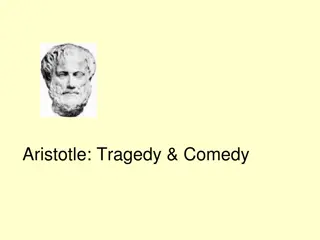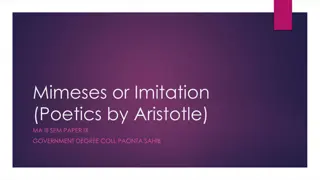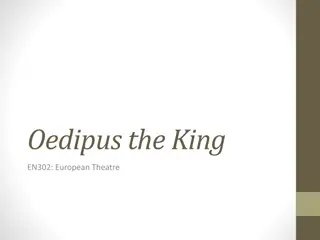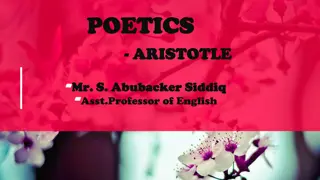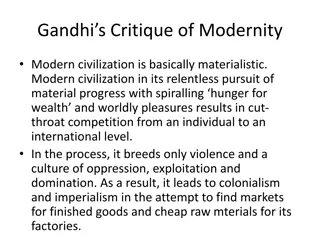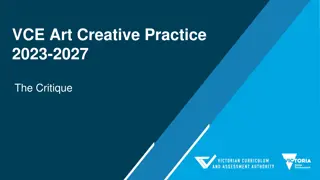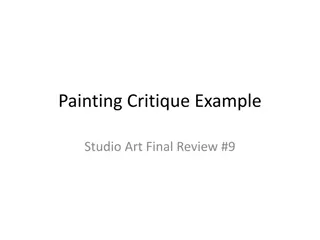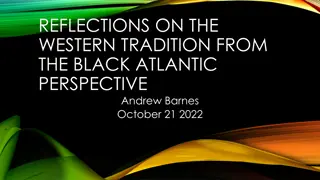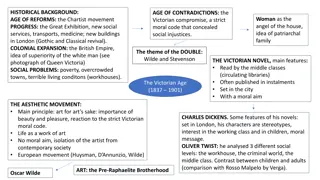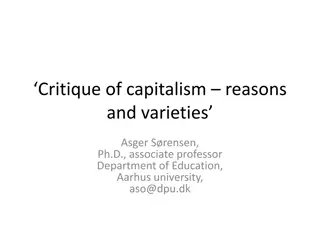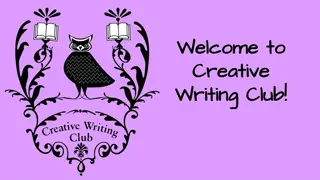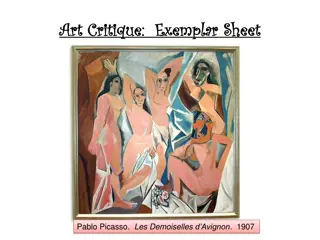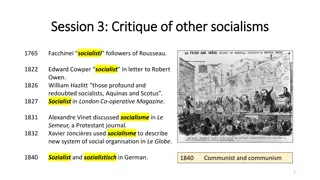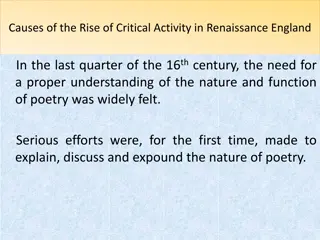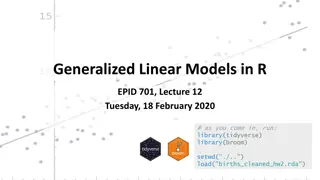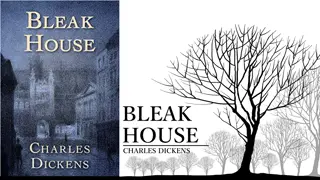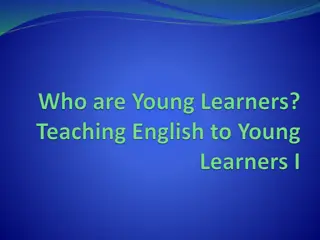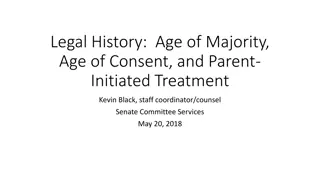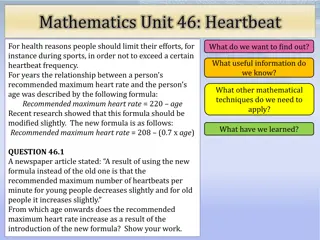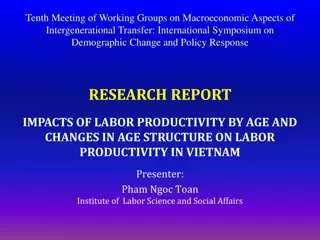Understanding Aristotle's Poetics: A Critique of the Classic Age
Aristotle, a tutor to Alexander the Great, delves into fundamental concepts in his work "Poetics." He challenges Plato's view of imitation, emphasizing creativity. Focusing on Mimesis, Katharsis, Hamartia, and Spoudaios, he explores the essence of art and tragedy, highlighting noble character and tragic flaws. Aristotle dissects the components of a tragedy including plot, character, thought, diction, spectacle, and song.
Download Presentation

Please find below an Image/Link to download the presentation.
The content on the website is provided AS IS for your information and personal use only. It may not be sold, licensed, or shared on other websites without obtaining consent from the author. Download presentation by click this link. If you encounter any issues during the download, it is possible that the publisher has removed the file from their server.
E N D
Presentation Transcript
ARISTOTLE CRITIC OF THE CLASSIC AGE (TUTOR OF ALEXANDER) Prepared by Nirmala Varghese Assistant Professor Dept of English Christian College
POETICS discusses concepts like 1 Mimesis 2.Katharsis 3 Hamartia 4 Spoudaios
Mimesis ( Imitation) Platonic view of art refuted by Aristotle For Plato, imitation implies mere copying and hence trivial and insignificant For Aristotle, imitation is creative and dynamic Poetic imitation ,for Aristotle is a imitation of inner human action
Katharsis [ Purgation/ Purification of emotions ( pity and fear)in excess] Meanings associated with katharsis 1 Therapeutic 2 Moral 3. Structural 4 Intellectual
Hamartia ( Tragic flaw/ Error in Judgement) The protagonist commits a moral error and for this, he receives his punishment Eg. Shakespeare s heroes( King Lear ) Oedipus Rex
Spoudaios( Noble Character) Character determines moral choice/moral purpose Tragedy imitates noble character
Components of a tragedy 1 Plot 2 Character 3 Thought 4. Diction 5. Spectacle 6 Song


